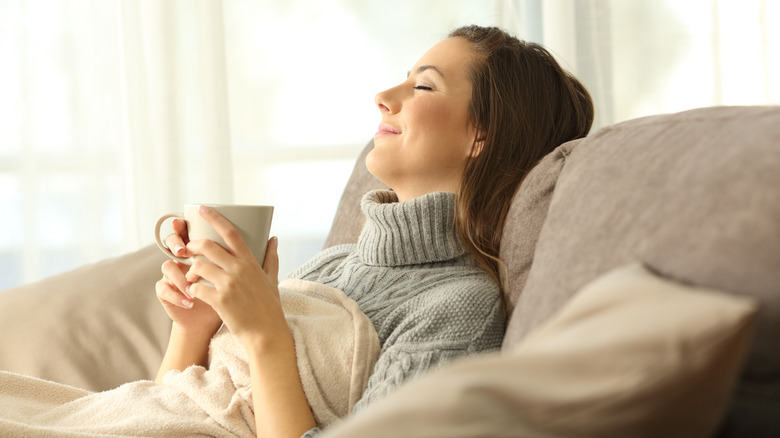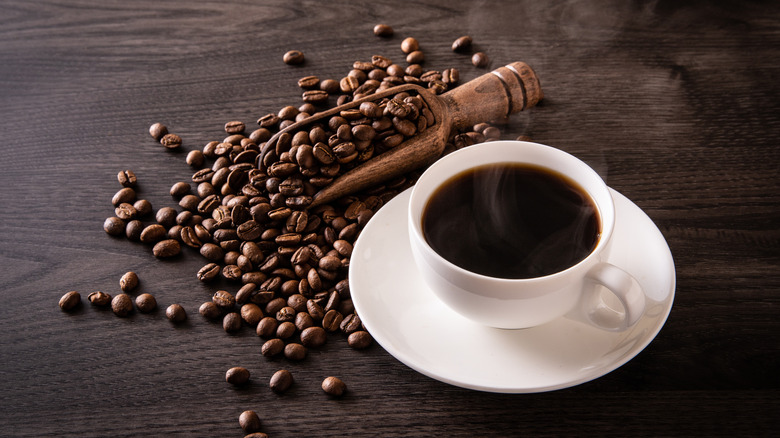Everything You Need To Know About Coffee Naps
While you might be more accustomed to choosing between drinking coffee or taking a nap, what about doing both? This strategy, known as a coffee nap, is better at maximizing alertness than either option alone, according to a study in Clinical Neurophysiology. A coffee nap, as described by Vox, entails drinking a caffeinated beverage then immediately taking a 15 to 20 minute nap. This might seem counterintuitive, since caffeine and sleep don't seem to go together. However, there is scientific reasoning to explain why this curious combination works.
Before diving into the science, let's consider the results. According to Healthline, multiple studies have confirmed that 200mg of caffeine ingested before a 15-20 minute nap had the effect of increased wakefulness. One such study, detailed in Vox, demonstrated that participants who had a coffee nap felt more awake than those who didn't when engaged in a driving simulation. The study found that even being "in bed half-asleep" for 15 minutes after drinking coffee led to increased alertness. However, Vox notes naps longer than 20 minutes were not recommended, because at this point the brain enters a deeper sleep, leading to drowsiness when awakening. The results suggest that coffee naps can be useful in specific situations that demand heightened alertness, or if you need to quickly increase wakefulness, such as before a long drive.
How do coffee naps work?
According to Healthy Sleep, sleepiness comes from a buildup of adenosine in the brain. Caffeine works by blocking some of adenosine's activity, which Healthy Sleep notes causes us to feel more awake. Healthy Sleep notes that when we sleep, adenosine levels are also reduced. With a 20 minute coffee nap, the adenosine in your brain will clear up around the same time that the caffeine starts to take effect, Vox reports. Since the brain's levels of adenosine are reduced, it would make sense that the caffeine can simultaneously target adenosine receptors with greater ease, leading to an even greater feeling of alertness than napping sans coffee.
While research results seem to encourage coffee naps, it is important to consider individual differences in caffeine tolerance. Registered dietitian Kristin Kirkpatrick tells Today that a coffee nap's effectiveness can depend on a person's metabolism. If you metabolize caffeine very quickly, she explains, the effects of the stimulant might kick in before you manage to fall asleep. As with any approach, it is essential to listen to your body and stick to what works for you. In Kirkpatrick's opinion, other practices such as maintaining adequate hydration could be more sustainable in keeping your energy levels high.

